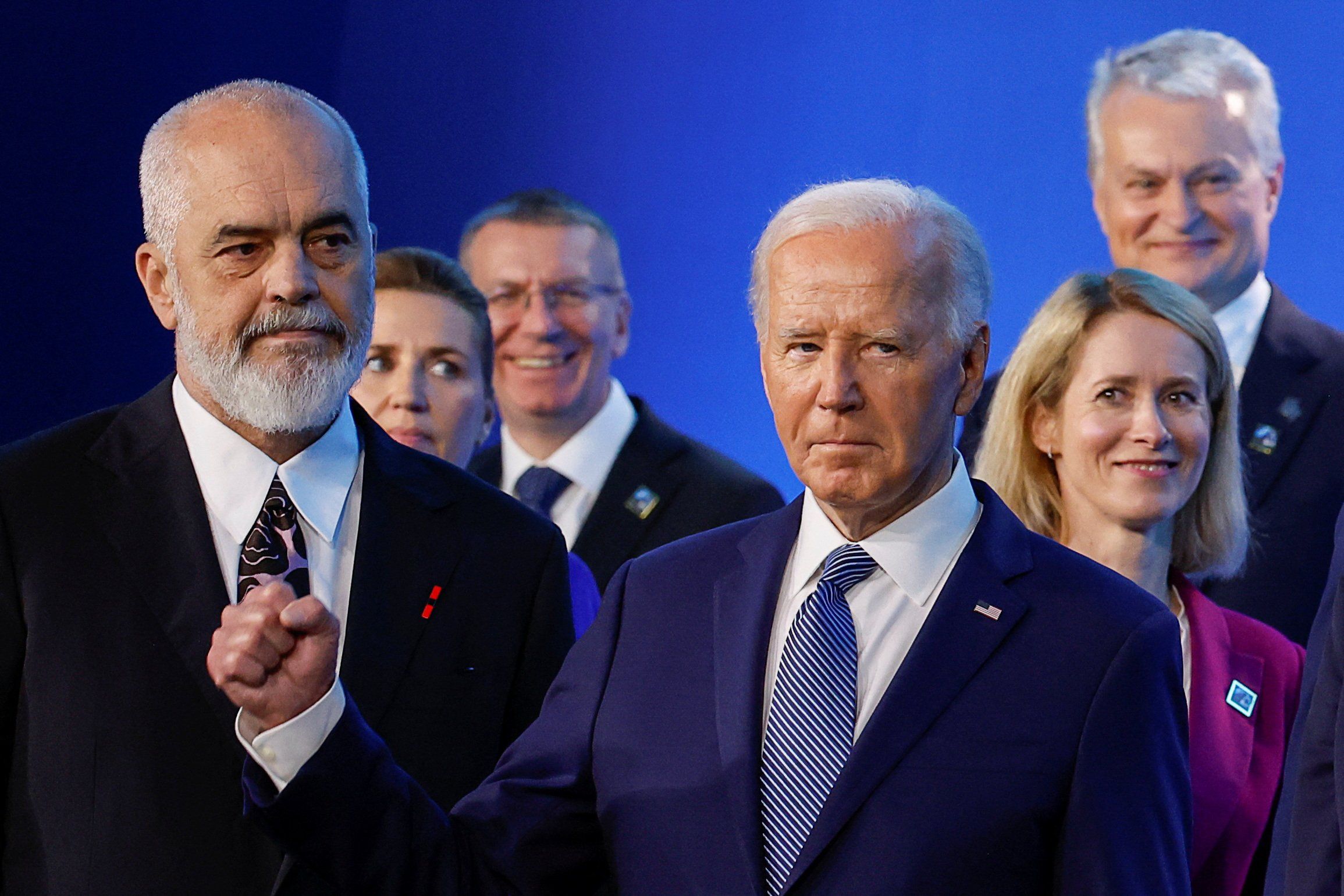While foreign allies have been respectfully circumspect on the subject during this week’s NATO summit in Washington, President Joe Biden has seen members of his own party increasingly express their doubts about his continued leadership. On Wednesday, former House Speaker Nancy Pelosi implied doubt by saying he had a “decision” to make — and George Clooney, a major fundraiser, wrote an op-ed arguing Biden should step aside.
The president has been on a blitz since his performance at the first debate deeply undermined voter confidence in him. After appearing weak and at times confused during his faceoff with Donald Trump, Biden has attempted to change impressions with more energetic rallies and interviews, as well as public statements and letters indicating he is committed to remaining the Democratic nominee. It hasn’t paid off: A steady stream of increasingly senior Democrats have questioned him publicly, including eight members of the House of Representatives, and Sens. Michael Bennet of Colorado and Richard Blumenthal of Connecticut. Behind the scenes, there is even more discontent: House Minority Leader Hakeem Jeffries is reportedly going to relay privately expressed concerns from his caucus — particularly members in battleground states — to the White House.
Late Wednesday, Sen. Peter Welch of Vermont went a step further than his colleagues: He publicly called on Biden to end his presidential campaign. “For the good of the country,” he wrote in an op-ed for the Washington Post, “I’m calling on President Biden to withdraw from the race.”
And that’s to say nothing of overseas concerns. NATO allies (with the likely exception of Hungary’s Viktor Orbán) are hardly eager to see Trump return given bad memories of his antipathy toward the alliance and fondness for Russian President Vladimir Putin. Biden hopes to reassure them, as well as his domestic critics, with a solo press conference from the summit on Thursday. We’ll be watching to see how he performs and whether it can ease the pressure.
